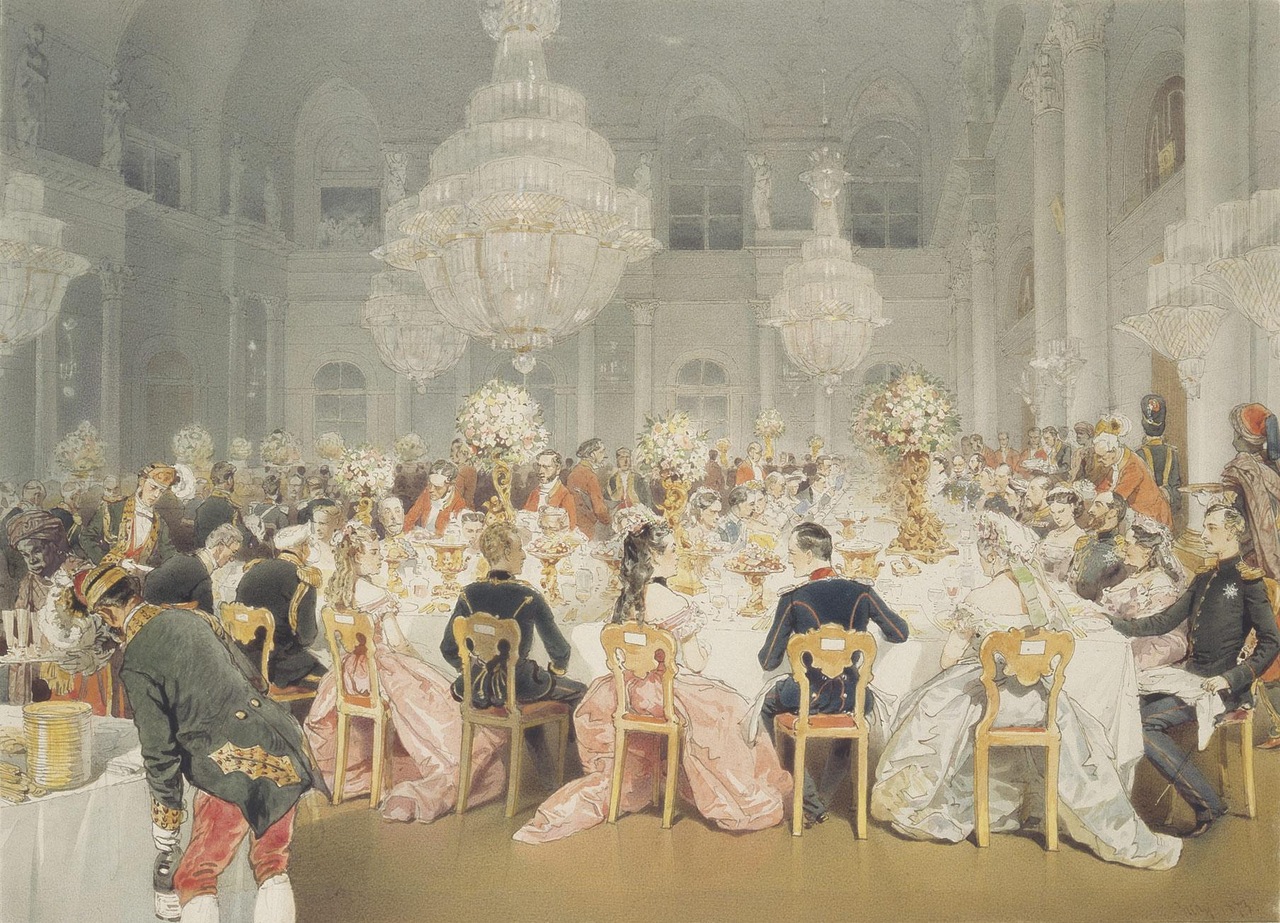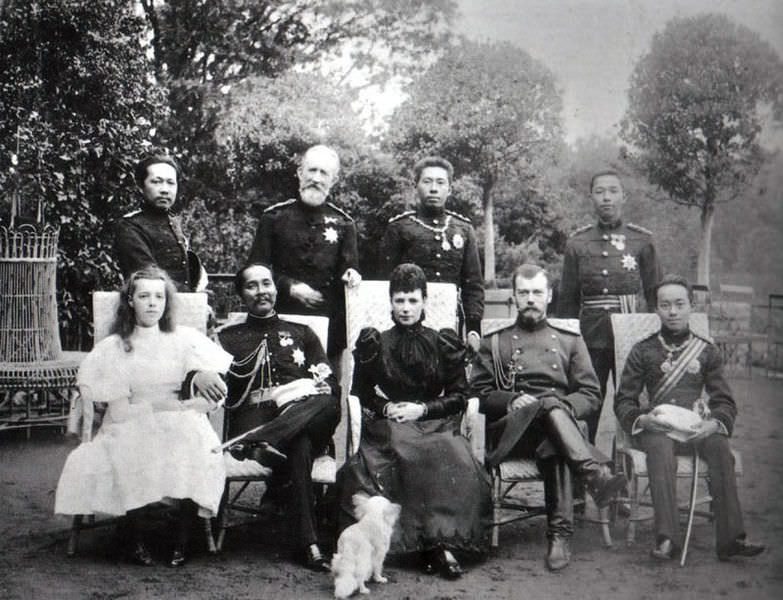
Royal welcome.
by Mikhail ZichiIn 1897 King Chulalongkorn (Rama V) of Siam visited Russia and laid the foundation for the development of Russia-Thailand ties. He was accorded special honors, and his visit stirred great interest among local residents. The king spent his first days in Russia at the Peterhof Palace, the summer residence of the Russian emperors.
On the second day a gala dinner was organized at the Grand Peterhof Palace during which the king was introduced to ministers, chief commanders and the most important officials of the court.
Gala dinners for high-profile guests in Russia were considered very important. Such dinners had to be exquisite. Chefs were required to preserve the national character of the food, and at the same time take into consideration the culinary passions of the high-profile guests. It was not easy to ensure complete compliance.
During the visit of the King of Siam, dishes with traditional Russian meat, poultry and fish were served in a French style. Among the delicacies were mutton with Venaison sauce, pheasants with hazelnut a la Clamart, duck liver in Perigord truffles, sturgeon in l'Ermitage wine and fried poulard (a young chicken fattened for the table). Turtle soup added an element of exotica and royal Montreuil peaches and sorbet were a wonderful conclusion to the gala dinner.
 King Chulalongkorn (Rama V) of Siam during his visit to Russia, 1897. Source: Wikipedia
King Chulalongkorn (Rama V) of Siam during his visit to Russia, 1897. Source: Wikipedia
In the Peterhof Palace's Chinese room there were also appetizers, including fresh caviar.
On July 7, 2007, the very same dishes were prepared for Queen Sirikit. The 1897 and 2007 printed menus are absolutely identical, with the exception of the dates.
In total the dinner consisted of ten dishes, while usual dinners consisted of about six. According to historians, Nicholas II was very modest in his eating habits, preferring simple dishes such as stew and chicken. On various festive occasions he would also eat meat pastries, salted fish and crabs.
Gastronomically, the Russian court was influenced by French traditions. In the beginning of the 19th century, even the gala dinner ceremonies were borrowed from France. But the main difference between the Russian format and the French equivalent was that in Russia the courses were not brought out together but were brought to the table one after another. Next to the guest's plate was a card indicating the next dish. Such a system of serving dishes became known as "service a la Russe.”
The preparation of the gala dinner in honor of Rama V's visit to Russia was delegated to French citizen and headwaiter Henry Lucienne Ponce, who at that time was in charge of the imperial kitchen. He was responsible for most of King Chulalongkorn’s meals in Russia. Another Frenchman, headwaiter Pierre Coubat was responsible for the other part. In 1887-1894 he was the owner of the Café de Paris in St. Petersburg. The café was replaced in 1894 by the historical Coubat restaurant. Later the establishment would become a famous meeting place for ballet lovers. In 1904 a dinner for American dancer Isadora Duncan was held in the restaurant, and in 1911 it was the venue for the celebrations to mark the 20th anniversary of Mathilda Kschessinskaya's ballet career.
Although during Nicholas II's reign all court headwaiters were French, all the chefs were Russian.
During the dinner Nicholas II declared, "I am happy to welcome Your Majesty and am pleased to be able to once again thank you for the many signs of attention that you showed me during my stay in Siam. I cherish the fondest memories of the kind and friendly reception that Your Majesty organized. I drink to the health of His Majesty King of Siam.”
Chulalongkorn replied, “I am very pleased that I was able to come here and give Your Majesty my respectful greeting in person. Your visit to Siam is still fresh in our hearts. Our people remember those few days with great pleasure and we consider you a true and mighty friend. I am very moved by the warm reception that Your Majesty has organized for me and for which I thank you from the bottom of my heart. I drink to the health of His Imperial Majesty the Emperor of Russia.”
During the evening, music played by the court orchestra in the park drifted in through the opened windows. After the dinner, when the sun had slightly set, lights were turned on in the park and the guest of honor was entertained with a fireworks display.
All rights reserved by Rossiyskaya Gazeta.
Subscribe
to our newsletter!
Get the week's best stories straight to your inbox